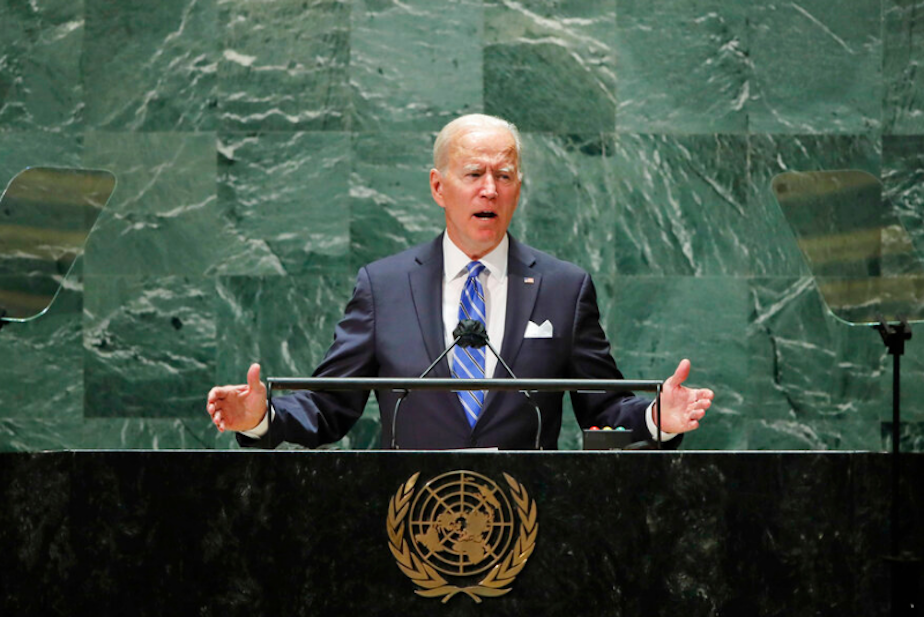WATCH: President Biden's Speech To The U.N. General Assembly

President Biden addressed the United Nations General Assembly Tuesday on a range of issues, including Covid-19, climate change and the withdrawal from Afghanistan.
President Biden told the delegates that the U.S. has ended "20 years of conflict in Afghanistan, and as we close this period of relentless war, we're opening a new era of relentless diplomacy. Of using the power of our development aid to invest in new ways of lifting people up around the world."
Biden declared that "Government by and for the people is still the best way to deliver for all of our people."
Updated September 21, 2021 at 10:17 AM ET
Sponsored
The original story follows here:
President Biden gives his first speech to delegates at the United Nations General Assembly on Tuesday morning, one that the administration says will address an array of issues, including COVID-19, climate change and the withdrawal from Afghanistan.
Speaking at the U.N.'s annual gathering of world leaders in New York City, Biden will try to convince a global audience that "America is back," though some allies say he has not kept to his promises of strengthening the United States' traditional alliances.
The abrupt U.S. withdrawal of military forces and diplomatic personnel from Afghanistan came despite urging from Britain that American troops remain longer.
A senior administration official who briefed reporters said that Biden's U.N. speech "will center on the proposition that we are closing the chapter on 20 years of war and opening a chapter of intensive diplomacy by rallying allies and partners and institutions to deal with the major challenges of our time."
Sponsored
Meanwhile, last week, France recalled its ambassador to Washington following the surprise announcement that the U.S. would share nuclear submarine technology with Australia, undercutting a $60 billion deal for diesel subs that France had with the Canberra government.
There have also been concerns that the Biden administration is pushing for COVID-19 booster shots for Americans while much of the world so far lacks enough vaccines to give their citizens a single shot. The White House is holding a virtual summit on COVID on Wednesday.
Before Biden spoke, U.N. Secretary General António Guterres warned that "the world must wake up."
"We face the greatest cascade of crises in our lifetimes," he said, citing COVID-19, the climate crisis and "upheaval from Afghanistan to Ethiopia to Yemen."
"We are on the edge of an abyss — and moving in the wrong direction," Guterres said. "Our world has never been more threatened, or more divided."
Sponsored
Biden will keep his stay in New York brief because of COVID-related concerns. He plans to meet with Australian Prime Minister Scott Morrison there and hold other meetings later in the week at the White House. [Copyright 2021 NPR]



